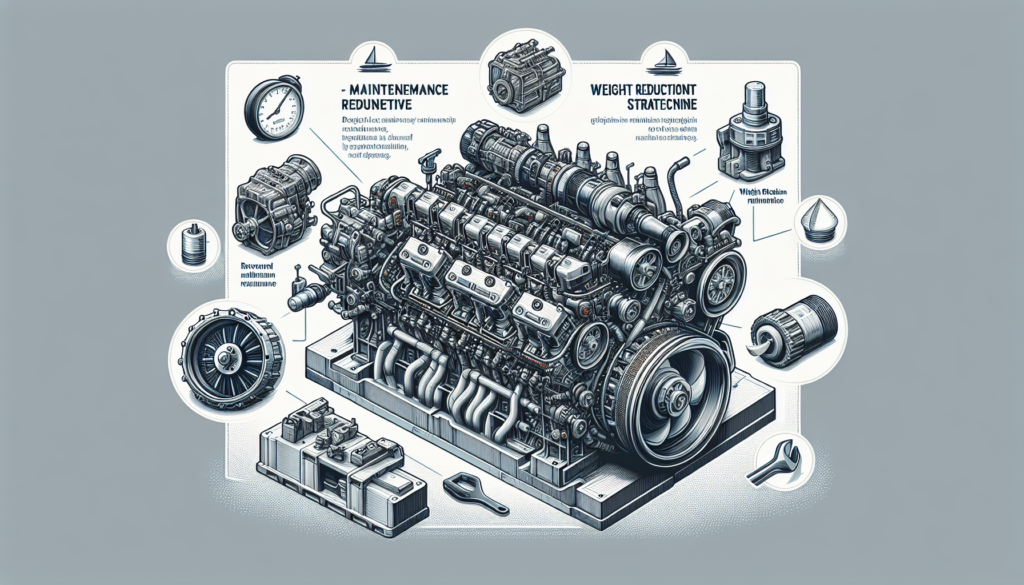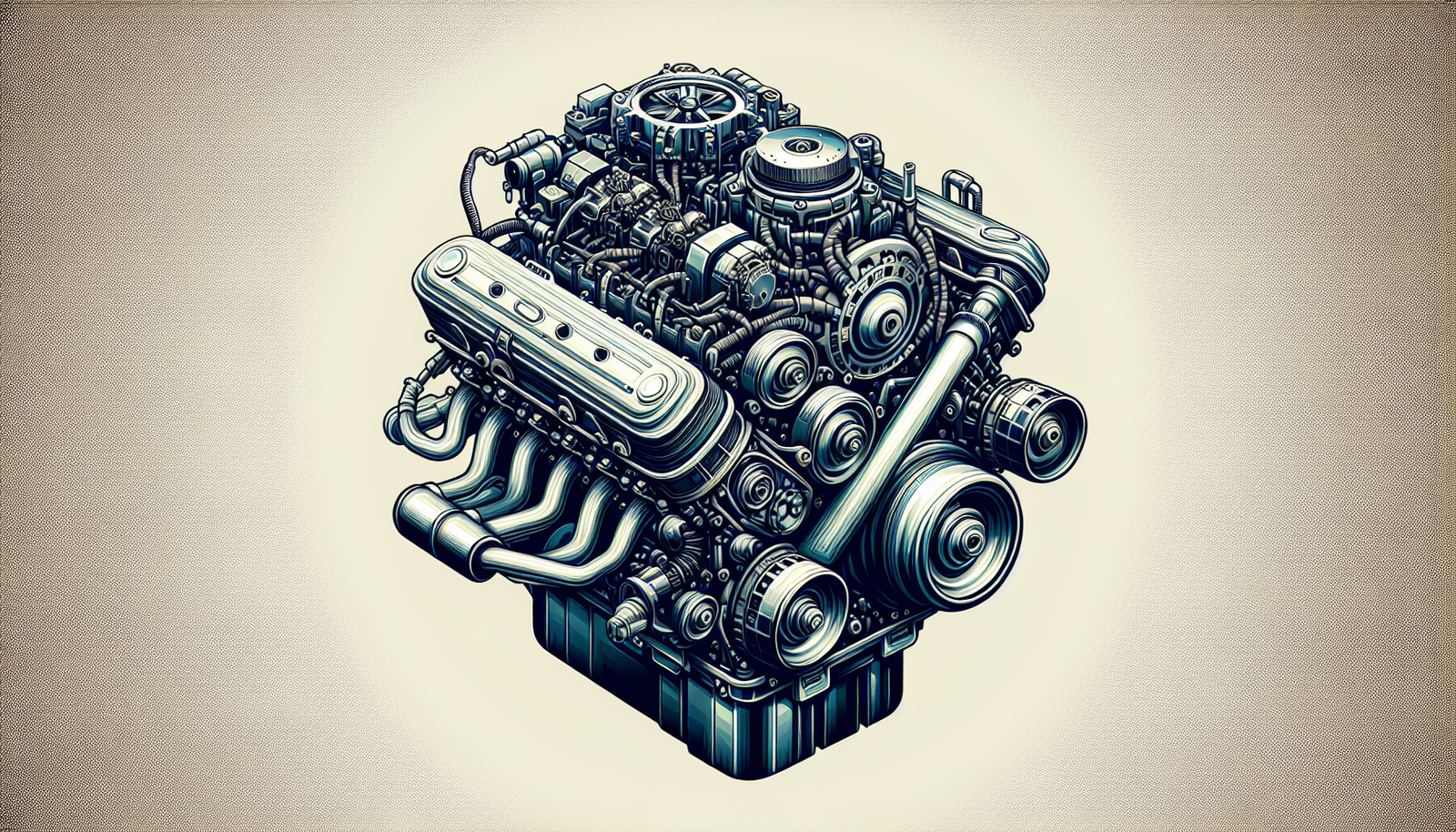As a boat owner, you likely keep a wary eye on the fluctuating prices at the gas pump. The cost of fueling up your aquatic vehicle can be sizable, particularly if your boat has a powerful, yet thirsty engine. In the article “How to Reduce Fuel Consumption in Boat Engines“, you’ll gain insight into effective tactics that can help lower your boat’s fuel consumption without compromising on speed or performance. Did you know that simple habits like proper engine maintenance and trim adjustment can significantly decrease your fuel usage? By applying these tips, you could make your boating experiences not only more economical but also more environmentally friendly. So, prepare to navigate the waters of fuel efficiency with your newly equipped knowledge.

Understanding the Basics of Fuel Consumption
You may be curious about the multitude of factors that can influence fuel consumption in your boat. Understanding these factors can go a long way toward improving your boat’s efficiency and reducing your fuel costs.
Factors affecting fuel consumption in boats
The fuel consumption of your boat isn’t just affected by the speed at which you choose to travel. Other factors come into play, such as the weight of your vessel, sea conditions, and how you operate your vessel, all of which can dramatically influence fuel efficiency.
How boat engines work
You don’t need to be a mechanical engineer to grasp the basics of how your boat’s engine works. The combustion of fuel in the engine produces heat, which in turn generates the power to turn the propeller. The more efficiently your engine performs this conversion, the less fuel you’ll use.
Why reducing fuel consumption is important
Reducing fuel consumption isn’t only about saving money at the pump. It’s also about being environmentally responsible. Excessive fuel consumption leads to higher emissions, contributing to air pollution and climate change.
Optimizing Engine Performance
Now that you understand the basics of fuel consumption, let’s take it a step further and discuss ways to optimize your engine’s performance.
Regular engine check and maintenance
Routine engine checks and maintenance are essential for maximizing fuel efficiency. Regular servicing ensures that your engine operates at peak performance, thus saving fuel.
Replacing old and worn-out parts
Old and worn-out parts can be a huge drain on your engine’s performance. Regular inspection and replacement of these parts can significantly improve efficiency and reduce fuel consumption.
Taking advantage of engine technology advancements
As technology advances, we’re seeing more efficient and environmentally friendly boat engines on the market. These engines can provide significant fuel savings compared to older models.
Maintaining Optimal Speed and RPM
Your perusing speed and revolutions per minute (RPM) also play a crucial role in your boat’s fuel consumption.
Understanding the effect of speed on fuel consumption
The faster you go, the more fuel your boat consumes. This is due to increased resistance from the water as your speed increases. It’s important to find the optimal speed that provides a balance between fuel efficiency and travel time.
Finding the optimal RPM for your boat engine
Your engine’s RPM affects the amount of fuel being consumed. Operating your engine at its most efficient RPM, often referred to as the “sweet spot,” can significantly reduce fuel consumption.
Avoiding unnecessary acceleration and deceleration
Abrupt changes in speed, either accelerating quickly or decelerating sharply, can waste fuel. Maintain steady speeds where possible for optimal fuel efficiency.

Proper Weight Distribution
The weight your boat carries and its distribution also affects your fuel consumption.
Effect of weight on fuel consumption
The heavier your boat, the harder your engine has to work, and the more fuel it consumes. Keeping your boat as light as possible and distributing the weight evenly can result in significant fuel savings.
Proper loading and unloading of cargo
Properly loading and unloading your cargo can contribute to keeping the weight evenly distributed, which can improve your boat’s balance and fuel efficiency.
Lightweight alternatives for common boat equipment and materials
Today, there are lightweight alternatives to almost every piece of boat equipment and materials. Opting for these alternatives can result in noticeable fuel savings over time.
Investing in More Efficient Boat Designs
Your boat’s design plays a vital role in how much fuel it consumes.
The role of boat design in fuel efficiency
The shape and design of your boat can drastically affect how it cuts through the water, which in turn, impacts fuel consumption. A well-designed boat should be efficient at moving through the water and easy to maneuver.
How hull shape impacts fuel consumption
The shape of your boat’s hull determines how much resistance the boat encounters as it moves through the water. A hull designed with fuel efficiency in mind minimizes this resistance, subsequently reducing the amount of fuel consumed.
Modifications to reduce water resistance
There are modifications that can be made to your boat to reduce water resistance, ranging from changes to the hull shape, to the installation of special devices.
Upgrading to More Fuel-Efficient Engines
If you want to maximize your fuel savings, you might consider swapping out your old engine for a more efficient model.
Latest advancements in engine efficiency
Thanks to constant research and development, boat engines are becoming more fuel-efficient than ever. Modern engines are designed with fuel economy in mind, whether that’s through advanced combustion technology, optimized propeller designs, or other innovations.
Considerations when swapping old engines
Swapping out an old engine for a new one is not a decision to be taken lightly. You’ll need to consider the cost of the new engine, installation costs, and whether your boat can accommodate the new engine.
Cost-benefit analysis of engine upgrades
Before making any major changes, a cost-benefit analysis can help you decide whether an engine upgrade makes financial sense. While an upgrade might lead to significant fuel savings in the long run, it’s important to consider whether those savings will outweigh the initial costs.
Employing Smart Boating Techniques
Improving fuel efficiency isn’t just about equipment–it’s also about how you use your boat.
Navigational planning and fuel efficiency
By planning your routes carefully, you can make your trips more fuel-efficient. Shorter routes, calm waters, and avoiding areas with heavy currents all help to reduce fuel consumption.
Effect of weather conditions on fuel consumption
Adverse weather conditions can significantly increase fuel consumption. Strong winds and high waves can increase water resistance, causing your engine to work harder.
Fuel-saving sailing techniques
There are fuel-saving techniques that you can apply while sailing, such as trimming your sails correctly and optimizing your pointing.
Consistent Boat Cleaning and Maintenance
Keeping your boat clean and well-maintained can also help to maximize fuel efficiency.
Importance of keeping the hull clean
A dirty hull increases drag, making your boat move slower through the water and requiring more power from the engine. Regular cleaning of the hull can keep drag to a minimum and reduce fuel consumption.
Why regular boat maintenance matters
Just like with a car, regular maintenance is critical for a boat’s performance. Routine inspections and immediate repair of any issues can ensure your boat runs smoothly and consumes less fuel.
Taking care of the propeller for better fuel economy
A well-maintained and efficient propeller is crucial for fuel economy. Replacing a worn-out or damaged propeller can result in notable fuel savings.
Utilizing Fuel Management Systems
Fuel management systems can provide useful insights and help you make more informed decisions about your boat’s fuel use.
Understanding what a fuel management system is
A fuel management system monitors your boat’s fuel consumption and provides real-time data and analysis. This data can then be used to implement more efficient fuel usage strategies.
Benefits of having a fuel management system onboard
A fuel management system can help you track your boat’s fuel efficiency, identify trends and issues, and make informed decisions that can lead to fuel savings.
Top-rated fuel management systems in the market
There are numerous fuel management systems available on the market, each with its own unique set of features. It’s important to choose one that best fits your specific boating needs.
Promoting Sustainable Boating Practices
Responsible boating isn’t just about saving money—it also contributes to preserving our waterways for future generations.
Importance of practicing fuel-efficient boating
By practicing fuel-efficient boating, you’re not just saving money, but also helping to reduce emissions and other forms of pollution that can harm marine life.
Policies on sustainable boating
Many marinas and boating organizations are starting to implement policies aimed at promoting sustainable boating. These may include guidelines on fuel use, engine maintenance, and cleaning and disposing of waste.
Educating other boaters on fuel-efficient practices
Every boater can play a part in promoting fuel efficiency. By sharing your knowledge and practices with fellow boaters, you can contribute to a more sustainable boating community. By being conscientious about your fuel consumption, you’re doing your part to protect the environment and preserve our planet’s resources, all while saving yourself a bit of money along the way.

